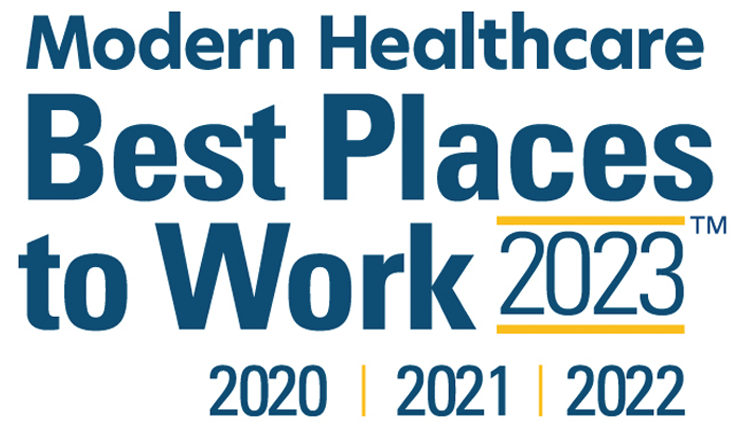Telehealth Coordinator Program
Baptist Medical Center Jacksonville Telehealth Coordinator Program
Baptist Medical Center Jacksonville (BMCJ) is one of the largest health care providers in Northeast Florida and serves the Jacksonville area with high-quality, comprehensive care for every stage of life.
The health system is comprised of more than 200 primary care and specialty physician practices, children’s specialty clinics, home health care, behavioral health, occupational health, rehabilitation services and urgent care.
Challenges
As the COVID-19 pandemic ravaged the nation, healthcare systems relied on technology and innovation at a rate never seen before, pivoting to support remote patient visits with clinicians through Zoom and other platforms, and between patients and their loved ones, as patients in COVID wards were unable to have visitors.
While these types of video calls have become familiar in many aspects of our lives, creating a cost-effective and secure rollout of the technology – at scale and in a hurry – for a healthcare environment required thoughtful consideration and a solid plan. How could the health system support patient communication between patients and the outside world without risking safety or releasing secure patient data?
Results
In May of 2020, the leadership team at BMCJ – including the Chief Medical Information Officer and Nurse Executives – held brainstorming sessions to create a program whereby nurses and providers (as well as family members) could communicate with patients without having to enter high-risk COVID isolation areas. It would enable the patient to stay connected while reducing exposure risk for individuals supporting patients’ care.
The team discussed many solutions and conducted independent research on how to successfully install video conferencing systems into rooms so that there was sufficient patient communication among provider teams and with the patient’s family members. Following a pilot program using iPads, the health system decided to use Zoom as their secure telecommunication platform and moved quickly to design workflows that would not create barriers for clinicians, and nurses providing care. The creative solution? Use non-clinical staff with technical aptitude to facilitate these important connections for patients.
This Telehealth Coordinator team would be used to support two separate breakout rooms using Zoom. The first of these rooms served as a connection point where clinicians, nursing staff and patients could discuss medications and treatment plans, while the second was used so that loved ones could place calls with their family members in the COVID unit. The telehealth coordinator (wearing all necessary PPE) would enter the patient room and facilitate a call with staff or family sitting in the appropriate breakout room.
This Telehealth Coordinator team consisted of eight coordinators that covered four distinct campuses in the Baptist Health system. Their primary charge was to launch and facilitate virtual meetings for those in the COVID unit across the health system. However, this small team of individuals did more than that during three deployments over an 18-month period. They formed deep and lasting connections with patients along the way.
These individuals may not have been healthcare providers in a traditional sense, but they provided a critical lifeline for those who were isolated and terrified as they battled COVID. Although it may have been challenging to fully appreciate facial expressions behind PPE during each visit, patients came to depend on this human interaction, sometimes the only direct contact they had with others during the weeks they spent in isolation. The brave and caring team of telehealth coordinators scrubbed in with smiles on their faces and joy in their eyes as they donned their PPE and provided meaningful service to the patients they supported.
Resource shortages and time constraints have been just some of the challenges all US hospitals have faced during multiple waves of the pandemic, now two years in. When COVID hospitalizations rise, these challenges become more acute. Applying out-of-the-box thinking to a problem of this magnitude is what helped Baptist Health manage patient communications effectively and safely. These telehealth coordinators – tech-savvy and caring – stepped up to do their part to help during the pandemic. As we look back on these two years, this team definitely should be counted among the healthcare heroes we honor for their service.
According to Cameron Chambers, Manager of Clinical Systems Training and Development at BMCJ, “When you’re admitted to a COVID unit in the hospital, you really don’t know what’s going to happen. . . if you’re going to survive the night and wake up in the morning . . . or not. But these same thoughts are racing through family members’ minds as well. However, with this program, we received so much incredibly positive feedback from family members and patients who were discharged. Often, this connection proved to be pivotal to patients staying motivated and continuing to fight so they could return home to their loved ones. It also provided great relief to families and friends who needed to be able to stay in touch with the patients.”


